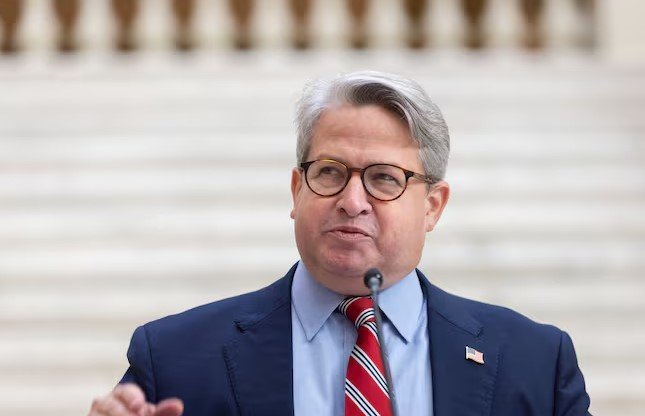Georgia’s Chief Operating Officer Talks Election Integrity, Voter Confidence, and National Reforms
ATLANTA — Gabriel Sterling, the Chief Operating Officer in Georgia’s Secretary of State’s Office, has become a significant figure in defending the state’s election system, especially after the 2020 presidential election. A lifelong Republican, Sterling’s public stance in support of Georgia’s electoral process has placed him in the spotlight, particularly amid accusations of voter suppression and election interference.
In an extensive interview with 11Alive’s The Georgia Vote, Sterling addressed a range of topics, including the challenges of maintaining voter confidence, responding to claims about election fraud, and a national election rule reform proposal that takes inspiration from Georgia’s system. Here’s a deeper look into some of the key points he discussed during the interview.
Defending Georgia’s Election Integrity
Sterling didn’t mince words when it came to addressing the ongoing accusations of widespread voter suppression and election fraud in Georgia. “Voter suppression and voter fraud are both fake,” Sterling stated, “but they’re really great for allowing people to throw bombs and raise money.” He emphasized that such claims only serve to undermine the public’s trust in the election system.

For Sterling, the core issue is that these allegations detract from the work done by election officials across the country. He pointed out that election workers in all 50 states and the District of Columbia are committed to ensuring that every eligible voter has a fair and easy path to voting while making it difficult for bad actors to cheat. “These officials fight every day to make sure every legal eligible voter has a right to easily vote,” Sterling said, reinforcing his belief that election integrity is a top priority across the nation.
National Election Reform Proposal Inspired by Georgia’s System
The conversation also turned to a national proposal to reform election rules, which is inspired by Georgia’s election system. Sterling acknowledged that while many voters in Georgia have confidence in the current system, there is still lingering doubt. “There’s still an underlying angst amongst many millions of voters that the system isn’t quite right yet,” he noted.
In response, Sterling advocated for a set of federal reforms that would introduce guardrails and best practices for other states to follow. He emphasized that these reforms would need to be carefully crafted to avoid causing harm while improving the system. “Do no harm,” Sterling said, outlining the approach that Georgia’s officials are taking toward the national proposal. His goal is to help create a system that fosters confidence not just in Georgia, but across the nation.
He also mentioned the importance of finding solutions to improve the system during a time when there is some belief in the system’s fairness. This would help ensure that all voters have confidence in the electoral process, a challenge that continues to haunt many states in the aftermath of the 2020 election.
Election Day Threats: A Growing Concern
One of the more troubling issues Sterling touched upon were the bomb threats made against polling locations in Georgia during Election Day. He explained the dangers of these types of threats, noting that they have a low risk but high reward for those seeking to cause chaos. “It takes an email and a phone to do some of these things,” Sterling said, adding that the anonymity and accessibility of such threats make them particularly difficult to counter.
These bomb threats serve as a reminder of the ongoing challenges election officials face in ensuring safe and secure voting environments. Despite these threats, Sterling reiterated that the goal remains the same: to ensure that every legal voter is able to cast their ballot without interference, and that the integrity of the election is upheld.
Sterling’s interview provides a candid look into the challenges of running an election system in a highly polarized environment. His leadership in Georgia’s Secretary of State’s Office has been crucial in navigating these challenges, particularly as the state faces national scrutiny over its electoral procedures.
As the nation looks toward potential election reforms, Sterling’s insights may provide valuable guidance for shaping a future system that maintains voter confidence while protecting the integrity of every election.
